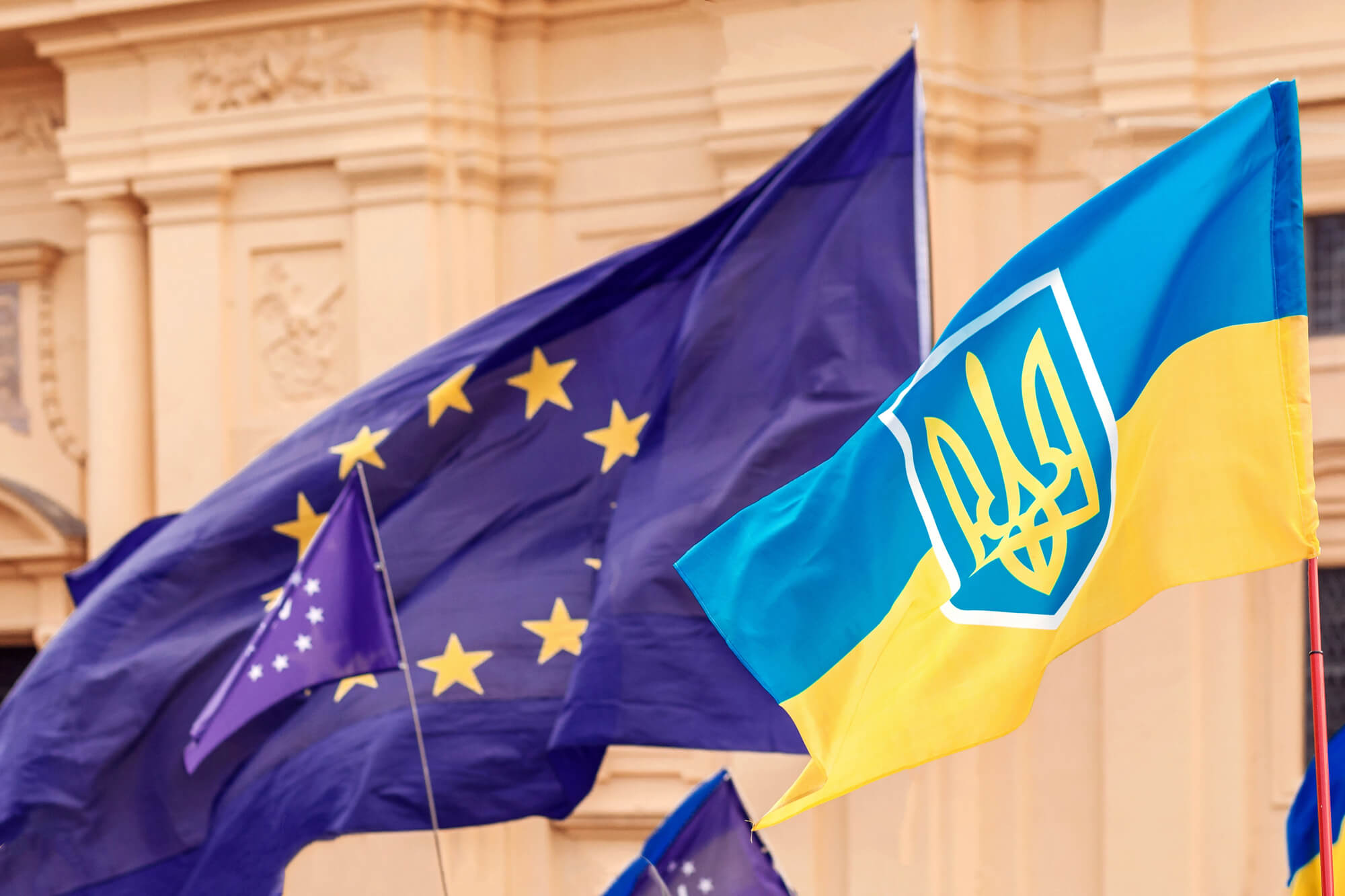This article argues that due to long-term changing migratory patterns and wider geopolitical shifts in the region, the EU’s visa liberalisation with Ukraine will be a largely short-term symbolic gesture, as Ukrainians will increasingly demand access to the EU labour market instead of mere short-term travel possibilities. As a result, there is a need to stop perceiving visa liberalisation as a political event, and rather present it as part of a long-term process towards an increased but managed cross-border mobility.
Elektra King: I could have given you the world.
James Bond: The world is not enough.
Elektra King: Foolish sentiment.
James Bond: Family motto.
(from James Bond, The World is Not Enough)
In the 1999 production of James Bond, starring Pierce Brosnan, the female villain Elektra King expresses regret over 007’s choice of principles and duty instead of the immediate material possessions of the oil heiress.
Ukrainian President Petro Poroshenko, on the other hand, made it pretty clear, that for Ukraine, Europe (or the aspiration of ever close relations, perhaps even membership of the European Union) is enough. In the past two years, Poroshenko has put visa liberalisation at the heart of his European policy. In fact, the President was very successfully in rhetorically entrapping European leadership by highlighting the granting of visa-free travel as a sign of European commitment to a country that chose to throw off Russian overlordship for closer relations with the Union.
As Poroshenko stated recently, visa liberalisation is an important step towards European aspirations of Ukrainians after the Revolution of Dignity…Ukraine considers…[the European Commission’s to recommend the lifting of visa requirements] decision as a powerful stimulus for continuation of reforms and counts on the support of the EU countries and European institutions in the establishment of the visa-free regime and further integration of Ukraine into the EU [1].
With the recent results of the Dutch referendum on the Association Agreement, the EU seems in an increasingly tight spot to show that it is serious about closer relations with Ukraine – which was recently reiterated (with special focus on visa liberalisation) by foreign ministers of 12 Nordic, Visegrad and Baltic countries.
This ‘politicisation’ of visa liberalisation (if granted by EU Member States) is, however, unlikely to bring any significant political victory. In fact, the possibility for Ukrainians to travel to the EU without passports is in practical terms most likely to be not enough or, at best, a short-term symbolic gesture of Ukraine’s new path.
While questions remain about the quality of implementation of EU norms and standards connected with visa liberalisation in areas such as security of documents, as the case of Moldova shows, the political benefits to be reaped are likely to be short-lived. Although Moldova has a considerably miniscule population in contrast to Ukraine, a significant number of Moldovans have already resided in the EU both legally and illegally either on Moldovan or Romanian documents [2] – in fact, the real number is higher (but unknown) than the estimated 210,000.
While roughly 500,000 Moldovans travelled to the EU visa-free between 2014 and 2015, the real problem lies with people’s expectations. It should be remembered that visa-free travel will only affect citizens with biometric passports and only for a maximum period of 90 days. The 90-day Schengen visa is designed for short-term visits such as study trips, academic exchanges, or business trips. At the same time, Ukrainians citizens living in border areas such as Zakarpattia already enjoy simplified cross-border travel to neighbouring Hungary, Poland or Slovakia.
Crucially, however, the Russian factor will once again be an impacting factor. In 2007, the known Ukrainian labour migrants represented 48% of all CIS labour migrants in Russia. By 2010, this has dropped to 43% [3]; war in the Donbas, annexation of Crimea, economic downturn and Russia’s new draconian migration policy are likely to affect these numbers even more significantly.
Yet, even if controlling for the impact of these short-term factors, it is possible to witness changes to existing migratory patterns within the region in both medium and long-term. According to the EU Neighbourhood Migration Report of 2013, circa 1 million Ukrainians are already legally residing within the EU [4], particularly in Poland, Italy and Spain. Of these, roughly 700,000 were already labour migrants before the Ukrainian Revolution, a 183% increase from 2002 [5].
The ICMPD estimates that this number is likely to grow in both medium and long-term as labour migration patterns within Armenia, Azerbaijan, Belarus, Moldova and, most significantly, Ukraine shift from Russia towards the EU. These trends can already be visible and are most likely to continue especially as the Russian market becomes increasingly hard to access and, at home, Ukraine grapples political and economic reforms. Students wishing to study in the EU countries but also, as witnessed in Central-Eastern Europe, disillusioned or unemployed young people in particular will be seeking to find work beyond Ukraine, whether it be for seasonal or more long-term arrangements.
Under this scenario, therefore, the political excitement over the visa liberalisation for 90 days is likely to evaporate quickly and, as in the case of Moldova, become rather symbolic of Ukraine’s new post-Maidan path. With changing patterns in regional migration, pressure for short-term visas will soon be replaced by pressure for easier access to the EU labour market. In this sense, Europe or, rather, visa-free travel to the EU will soon not be enough. It will, in the words of Elektra King, become a foolish sentiment. At a time of economic woes and fears over migration across the EU, Poroshenko (or his successor) may very quickly find the limits to his European ambitions and, consequently, the reaping of political benefits.
As a result, there is a need to stop perceiving visa liberalisation as a political event, and rather present it as part of a long-term process towards increased but managed cross-border mobility. Therefore, with ambitious attempts at greater access to the EU labour market being unlikely owing to current political trends in the Union, there are however possibilities for a more gradual process, such as small-scale pilot projects that can address both emigration from Ukraine and help to fill specialist vacancies in EU Member States.
Although Ukraine did not sign a multilateral Mobility Partnership with the EU (which was perceived as below the country’s ambitions), bilateral agreements can be signed with specific Member States. While these would be short-term arrangements limited to specific sectors, recent regional examples such as the German project on addressing the mobility of Moldovan health professionals [6], highlighted the potential of circular migration in both, addressing the issue of brain drain and managing cross-border labour mobility in a way that is sustainable and beneficial for both sides.
Therefore, while the politicisation of visa liberalisation may soon lead to disappointment, a more strategic discourse needs to be presented to the Ukrainian public that will highlight the long-term prospects for EU-Ukraine cross-border mobility. Visa liberalisation may prove to not be enough, but addressing long-term trends and challenges may yet prove to be more than a foolish sentiment.
Notes
[1] ‘President of Ukraine Petro Poroshenko held a meeting with European Commissioner for European Neighbourhood Policy and Enlargement Negotiations Johannes Hahn’; Ukraine MFA Press Release (20/04/2016)
[2] It is estimated that circa 500,000 Moldovans either possess or have applied for a Romanian passport
[3] Jaroszewicz, Marta & Kindler, Marta (2015). Irregular Migration Patterns from Ukraine and Belarus into the EU: A Risk Analysis Study; Centre of Migration Research Warsaw
[4] Baras, Anna et al (2013). Regional Migration Report: Eastern Europe; Migration Policy Centre Vienna
[5] Pluim, Martijn et al (2014). Changing Migratory Realities: Why Migration Between the EU, Russia and the Eastern Neighbourhood Will Change; International Centre for Migration Policy Development Florence
[6] Better managing the mobility of health professionals in the Republic of Moldova – context, challenges, and lessons learned (Accessed: 02/05/2016)
Attention
The author doesn`t work for, consult to, own shares in or receive funding from any company or organization that would benefit from this article, and have no relevant affiliations



